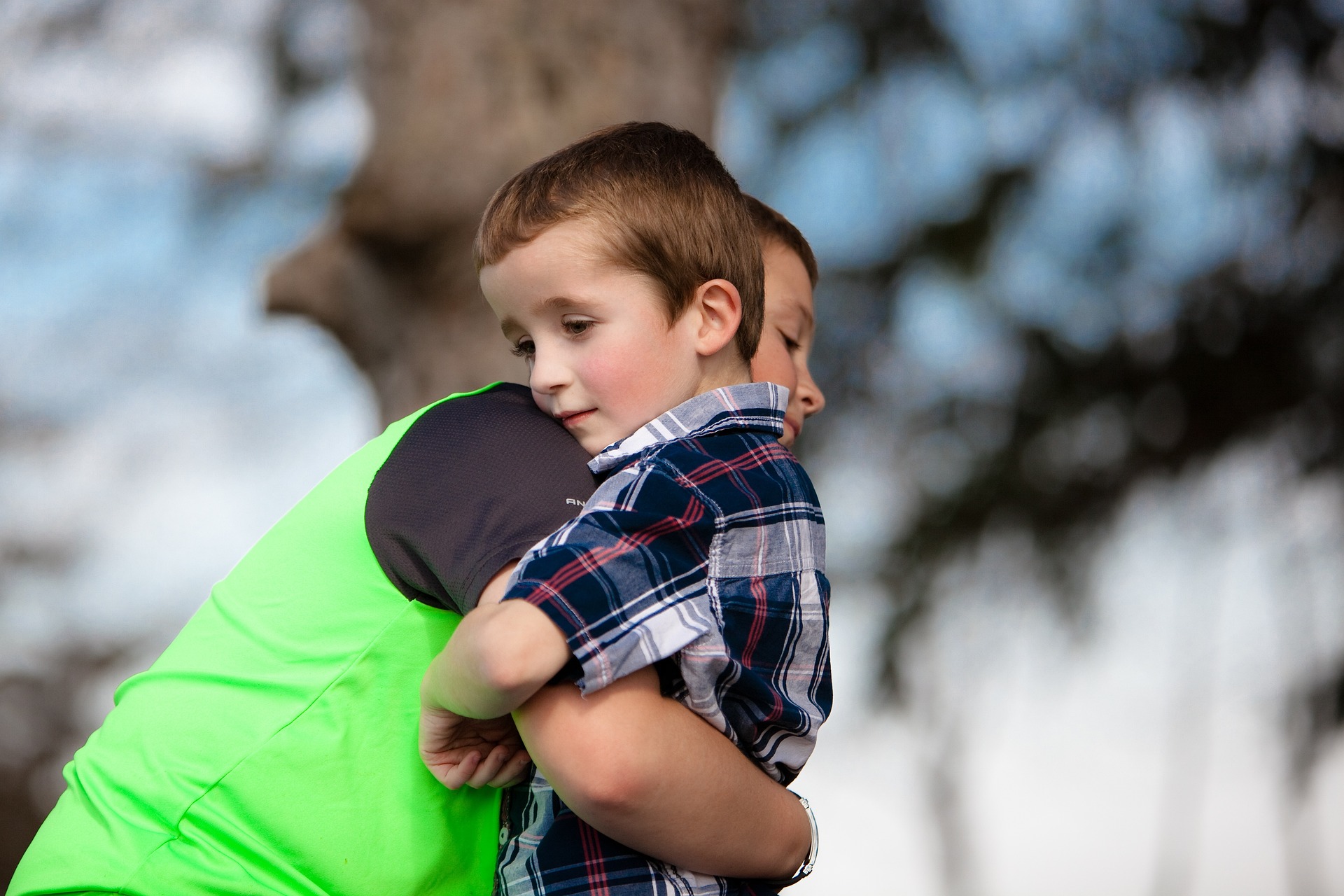5 Truths to Teach Kids About Forgiveness
Kids have great memories. They know song lyrics, can quote movies and books, and they can even remind you of things you had completely forgotten about. While this gift of memory is usually a great thing, it can make it hard for kids to forgive others who wrong them.
We all know children who learn to forgive live happier and healthier lives than those who hold grudges. So, how can we teach kids about forgiveness in a way that will make them want to make that personal choice to forgive others? Here are 5 truths you can teach kids about forgiveness.
1. Teach Kids to Forgive Quickly
First, teach kids forgiveness should come quickly. We all know the saying “forgive and forget.” But is that really possible? God says in Hebrews 10:17, “I will remember their sins and their lawless deeds no more.” It’s important to recognize that when God says this, He is saying it as an omniscient being — one who knows everything. And yet, here He’s stating that it is His choice not to remember our sins for our benefit.
While we are not God, God is our example of how we are to forgive others: completely and with no record of wrongs. Often when we hold a grudge, we rehearse the offense in our minds so much it becomes impossible to forget. Choosing to forgive quickly is just one way we can help ourselves to both forgive and forget.
2. Teach Kids Forgiveness is Holy
Second, teach kids forgiveness isn’t an option. God commands us to forgive. The Bible says in Colossians 3:13 “…as the Lord has forgiven you, so you also must forgive.” When Jesus taught His disciples to pray, He taught them to say, “and forgive us our debts, as we also have forgiven our debtors” (Matthew 6:12). If we ask to be forgiven to the same extent that we have forgiven others, but we haven’t forgiven others, then we’re asking to not be forgiven at all! Remind kids that every time they choose to forgive others, they are allowing themselves, too, to also be forgiven when they sin.
3. Teach Kids Forgiveness is Hard, But Good
There’s no way around it: forgiveness involves absorbing pain — something that can be hard when kids have a keen sense of justice. If someone does something wrong, it’s only fair that they suffer the consequences, right? Well, yes and no.
To teach kids about forgiveness, you can assure kids that God also has a keen sense of justice. Every sin must be punished, because that’s what justice is. However, instead of making us suffer for every one of our sins, Jesus chose to take the punishment on Himself. He absorbed the pain for us so we could go free.
When we forgive someone and don’t demand they apologize or pay for what they did, there is always an element of pain that has to be absorbed. It hurts that we should have to feel that pain for someone else’s sin, and it will continue to hurt our sense of justice, unless we choose to absorb it. Then, and only then, can we enter into the fellowship of suffering with Christ that is mentioned in Philippians 2.
When we choose to forgive someone, we can hand that pain of injustice to Jesus, thank Him for absorbing pain for us, and be at peace about the hurt we experienced. After all, often even if someone does apologize or have consequences, it doesn’t seem like enough to our sense of fairness, so choosing to absorb the pain like Jesus did is the most helpful thing we can do — both for ourselves and for the offender.
4. Teach Kids Forgiveness Doesn’t Equal Trust
Fourth, teach kids that forgiveness does not equal trust. Forgiveness is something given; trust is something earned. Kids need to understand that even though they are supposed to forgive all people when they wrong us, not all people are trustworthy. The kind of people they can trust are those who consistently have integrity, do right, apologize for their actions, and learn from their mistakes. Forgiving someone does not mean we have to trust them, and this is especially true when the offense is serious.
Although kids should forgive those who hurt them, that doesn’t mean they should spend time with them afterwards, or that the bully or abuser should go unpunished. Forgiveness is the personal choice to no longer hold onto bitterness — whether the offender ever says they are sorry or not. It is not a free pass for the offender to avoid all consequences of their actions. In fact, sometimes the best thing a child can do is tell on someone to a higher authority, like a parent or teacher, so the offender can face justice and learn to become a trustworthy person.
5. Teach Kids Forgiveness Brings Freedom
Last but not least, teach kids that forgiveness has benefits. Proverbs 17:22 says, “A joyful heart is good medicine, but a crushed spirit dries up the bones.” Finding freedom in forgiveness brings many physical, mental, and spiritual benefits, whereas bitterness causes discouragement to the point of physical, mental, and spiritual sickness.
Teach kids that the benefits of forgiveness are peace, comfort, love, and joy, while people who hold onto past grudges aren’t good friends to be around. Choosing forgiveness is just one of the many things that will make them a pleasant person to be around, and a good witness of what God is like in how He loves and forgives us.
Teaching kids about forgiveness through these 5 truths from Scripture will help them on their way to deepening their relationships with themselves, other people, and with God — the epitome of love and forgiveness.
This content is from the CEF podcast Teach Kids. Listen to more content like this on the Teach Kids podcast through your favorite podcast platform. #TeachKids #KidsMin
Teaching Kids Worship: Everyday Moments That Honor God | CEF
Discover practical ways for teaching kids worship beyond Sunday mornings with these everyday activities that help children recognize God’s presence.
Spiritual Disciplines for Christian Family Devotions | CEF
Transform your Christian family devotions using sports analogies that active kids understand, turning Scripture, worship, prayer and giving into daily spiritual training.
6 Tips for Teaching Kids About Honesty | CEF
Teaching kids about honesty is vital for Christian parents. Read for 6 practical ways to teach honesty for kids and make truthfulness attractive.
Stay Connected with CEF
Subscribe to our email lists to receive updates, news, and stories based on your needs and interests.




